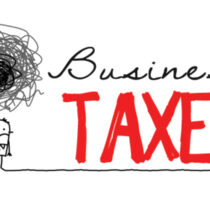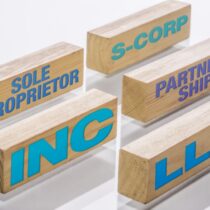
If you’re a business owner, your company is likely your most valuable asset. To ensure it survives after you’re gone, you first need a succession plan that will provide a smooth transition of the business to one or more of your children (assuming you want to keep it in the family). In addition, you need an estate plan that effectively addresses the tax impact of transferring your ownership interests to the next generation.
Consider Who’ll Take the Reins
If you’re like many business owners, you may dream of the day you can transfer ownership to your children. A succession plan can provide a smooth transition of power when you retire and be used in the event of unexpected death before retirement.
Typically, a succession plan will outline the structure going forward and prepare for the eventual transfer of ownership interests in the business, whether through selling, gifting or a combination of the two. Make sure the plan is in writing. Identify training opportunities and special compensation arrangements for your successors. Include in the plan financial details reflecting assets, liabilities and current value, and update the plan periodically. Also, coordinate your succession plan with your estate plan.
Ensure Key Estate Planning Documents Are in Place
A comprehensive estate plan should be supported by several key documents, starting with a basic will. A will specifies how your assets will be distributed to designated beneficiaries and meets other objectives. Without a will or having assets otherwise titled, your business and other assets will be distributed under the prevailing state law, regardless of your wishes.
A financial power of attorney (POA) appoints someone to manage your affairs in case you become incapacitated and allows this “attorney-in-fact” to conduct business transactions. (Other important documents include health care powers of attorney and advanced directives.)
Make Use of Tax Breaks
If you own significant business assets, consider taking maximum advantage of currently available federal estate tax breaks. These include the unlimited marital deduction and the federal gift and estate tax exemption, which in 2024 shields up to $13.61 million. Some states also impose their own state estate or inheritance taxes.
You may be able to minimize federal and state taxes by using trusts or setting up a family limited partnership (FLP). With a tax-favored FLP, assets are removed from your taxable estate and limited partner interests can be gifted to loved ones, often at a discounted value.
Bypass Potential Family Conflicts
As you develop your succession and estate plans, you may face family challenges. Unfortunately, elevating one child to run the business and leaving another out, or giving someone a secondary role, may create hard feelings.
One estate planning strategy is to attempt to even things out. For example, let’s say that you own a business valued at $5 million and you have $5 million in other assets. You might give $5 million in business assets to the child who’s taking the helm of your business and give other assets worth $5 million to the child who isn’t active (or is less active) in the business.
Relax and Enjoy a Smooth Transition
There’s no universal plan for family business succession. What’s right depends on your circumstances and goals.














































































Comments are closed.